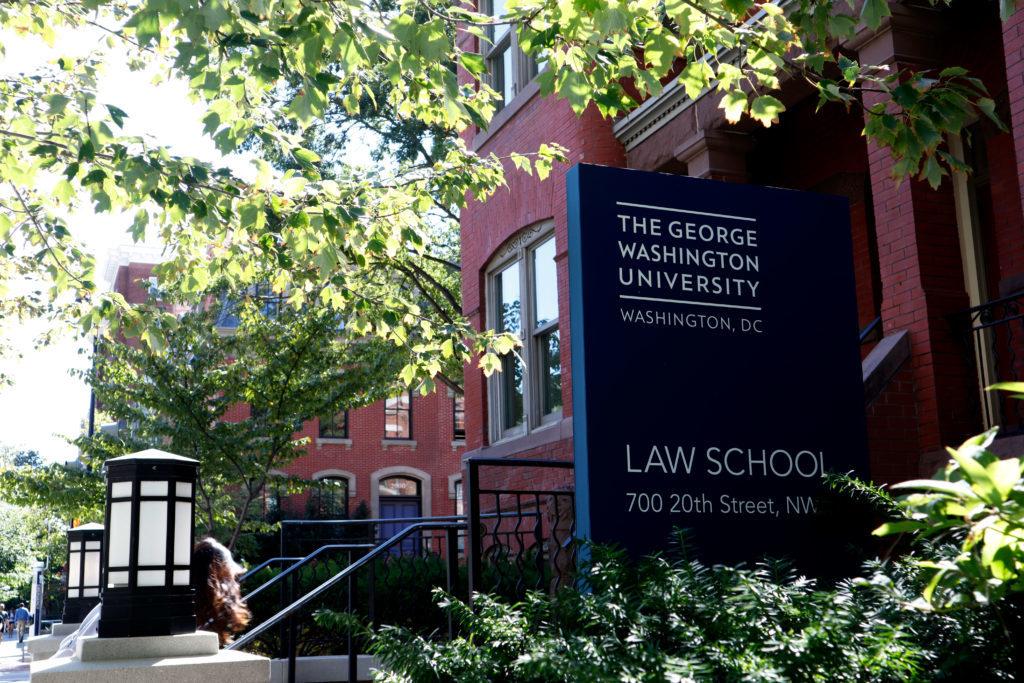Law school officials are working to expand the school’s offerings to provide students more opportunities to practice law before they graduate.
Five years after launching a planning committee to improve the school’s hands-on learning experiences, law school officials have launched two new “fundamentals” courses for law students and updated several courses to include more “practical and experiential” learning for students. Leaders said the changes will further prepare students for their careers by demonstrating how law is practiced in the real world.
Emily Hammond, the law school’s Jeffrey and Martha Kohn senior associate dean for academic affairs, said officials continuously work to update the content of law courses and provide more opportunities for students to gain practical experience. They said law school administrators have engaged in “a number of teaching workshops” to learn more about how to increase the number of opportunities.
“These enhancements will better prepare our students for success in today’s legal profession and position them to become leaders in the field both nationally and globally,” they said in an email.
Officials formed a 15-person committee composed of faculty, associate deans and a student five years ago to increase the number of experiential learning opportunities for law students and to better train faculty to prepare students for their careers. The committee convened amid rising challenges, like declining enrollment and low job placement, for law schools nationally.
Hammond said the law school debuted two new courses this semester: Fundamentals of Lawyering and Legislation and Regulation.
They said Fundamentals of Lawyering is a six-credit, two-semester-long course for first-year law students that teaches research, writing and legal analysis “through a professional lens” and includes a focus on the lawyer-client relationship. Legislation and Regulation gives students a “Washingtonian perspective” on practicing law by teaching topics like oversight of administrative agencies, according to the law school’s website.
They declined to specify what changes were made to other courses to incorporate more practical education opportunities.
Law professors said boosting exposure to experiential, clinical education in courses, a trend across law schools nationwide, will give students more “real-world” experience in law before they graduate so they can develop skills that law firms want in their employees.
Michael Schwartz, an associate professor of law and the director of the Disability Rights Clinic at Syracuse University, said increasing hands-on opportunities could lead to a jump in applications to law schools, which had been declining nationally for several years before increasing for the past two years. He said students are more encouraged to apply what they learn to real-life situations when they work closely with instructors who actively work in the field on real cases.
“Law becomes concrete, not abstract, and working with clients helps the students see the impact of their strategizing on behalf of the client,” Schwartz said in an email.
Andrew Benjamin, an affiliate professor of law and clinical professor of psychology at the University of Washington, said he advocates for practical clinical programming for law students because students learn the most about how the law works when they directly interact with clients. He said students participating in law clinics learn most effectively through close work with their instructors.
He added that clinics can help students get a better sense of which areas of law they are passionate about studying or practicing after graduation.
“People are able to build their sense of competence by engaging in a clinic in an area of law that they think they might be interested in,” he said.
Donald Beskind, a professor of the practice of law at Duke University, said graduating law students should be “practice-ready” when they enter the workforce and learn more in school than law theory.
“The ability to interview, the ability to analyze, the ability to produce writing that’s useful in practice, the ability to develop relationships with clients, the ability to be on your feet and present in various forums – all of these things are critical for lawyers,” Beskind said.
Sydney Teabout contributed reporting.








